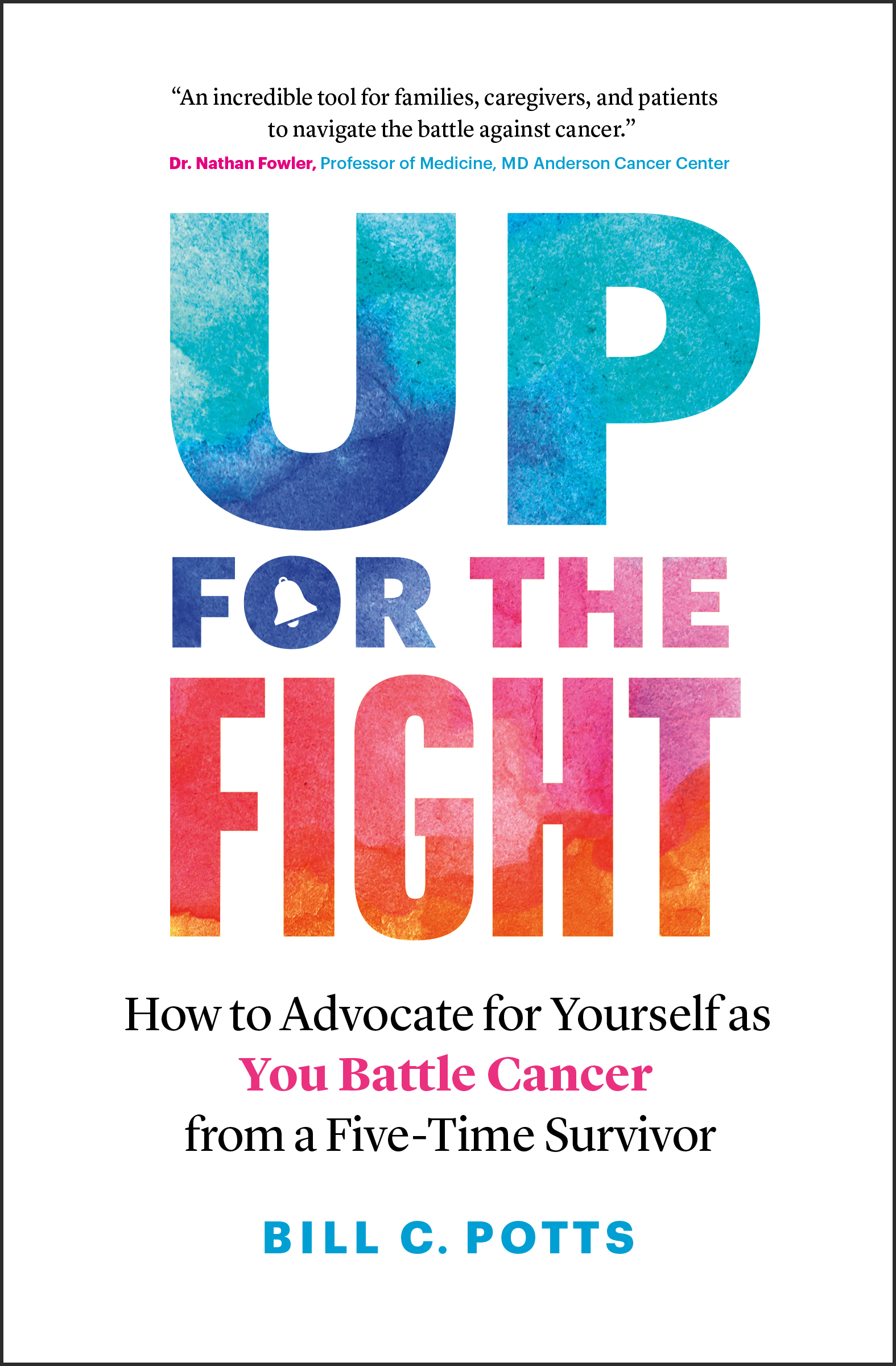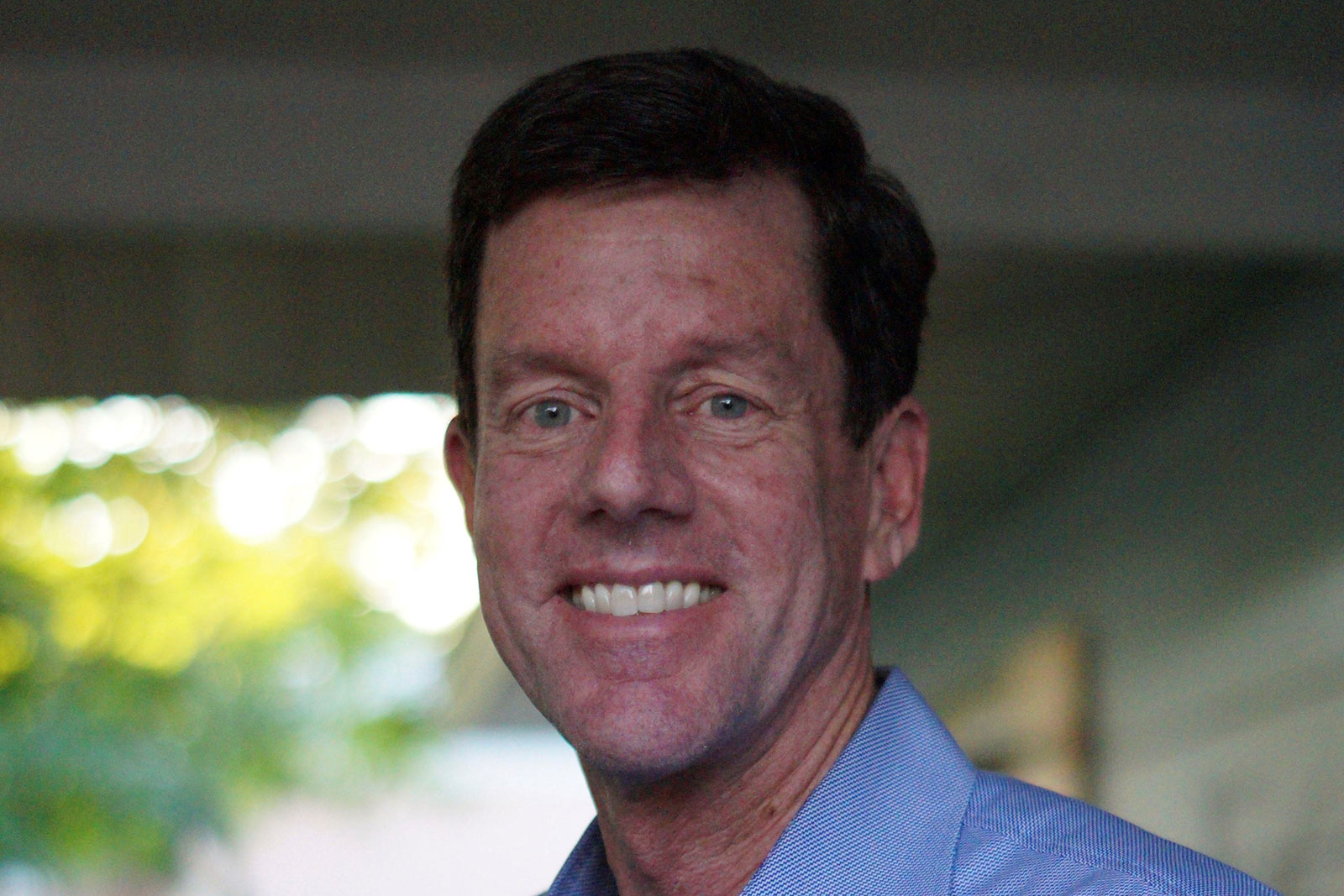By Bill Potts
My cancer journey started 20 years ago, when I was diagnosed with thyroid cancer. My thyroid was removed, and I went through radiation-ablation treatment (with Iodine-131) and believed my cancer journey was complete. However, I was diagnosed with stage III lymphoma in 2008. The doctors told me it was incurable, and then the journey became extremely challenging.
The lymphoma came back again in 2014 and 2019. In 2020, I was diagnosed first with prostate cancer and then with lymphoma — again. We decided to “watch and wait” on the prostate cancer, but the lymphoma treatment in 2020 and 2021 was brutal. Now, over a year after being declared in remission again and beating cancer for the fifth time, I am still severely immunocompromised and living a very sheltered life.
After surgery to remove a cancerous tumor on Sept. 17, 2020, I had an emotional breakdown in the recovery room of the Mayo Clinic in Jacksonville, Florida. I told the nurse I was not sure I was up for the fight again. I knew what was coming with the next lymphoma treatment, and was pondering giving up. After spending an hour discussing this with the Mayo staff, I reconnected with the reasons I needed to fight: for my family and friends, my work and to make God proud. The Mayo pastor then suggested I write a book. A book to turn my pain into purpose. And so I did: “Up for the Fight: How to Advocate for Yourself as You Battle Cancer from a Five-Time Survivor.”
Here are five key lessons I have learned in my journey on how to manage the cancer battle:
1.
A cancer patient needs to own their cancer journey. Why? The patient’s life depends on it. Many believe the medical care team owns the patient journey, but in fact, the patient is in charge. Picking the care team is the first step to take control of your journey, and this includes getting a second opinion.
A great care team will appreciate a patient who advocates for themself. This includes bringing a list of questions to any appointment. Advocating for yourself also means doing the homework necessary to understand how the treatment works and what the side effects may be. Communicating frequently with your care team on any medical issue is important, too. Those that advocate for themselves treat the cancer journey like a job. They are organized, prepared and build relationships with the care team. I am 100% certain that had I not owned my journey, I would not be alive today.
2.
Cancer patients need a buddy for the cancer journey, especially for appointments and treatments. For appointments, the buddy provides a second set of eyes and ears, at a time when it can be hard for the patient to be focused. A buddy should be asking questions and taking notes during appointments. During treatments, the buddy can provide emotional support for the patient, in addition to keeping them comfortable, and notifying the care team of any issues.
Being a cancer patient’s buddy is a big responsibility. The buddy must be an adult, a good listener, organized, emotionally strong and, most importantly, healthy. The buddy does not always need to be the same person, but consistency helps. My buddy has been my wife, Kim, and she has done an amazing job.
3.
Fighting cancer is expensive. There is no way around it. So, cancer patients must manage the business of cancer early in the journey. Costs can include copays, deductibles and medication costs. Cancer costs may include travel costs to and from the care center. Lost wages due to the inability to work can add financial challenges. Costs can add up for new clothing needed when gaining or losing weight, as can an improved diet to manage side effects. There are many nonprofit organizations that can help with the financial stress of having cancer. The Leukemia & Lymphoma Society provided guidance for me early in my journey. Most cancer centers have a social worker on staff who can help direct you to resources, too.
Wills, medical directives and other legal documents should also be managed upon diagnosis. My family has a “just in case” file — one I created — but hope they never need to read. The file includes details about what to do if I die. It includes things like notes to the family, funeral suggestions, passwords for social media accounts and what to do with my things. This file gives me peace of mind should something unexpected happen.
4.
The emotional and mental toll on the cancer patient can often be as bad or worse than the physical toll. Antidepressants are thus commonly prescribed to cancer patients. It is important that the cancer patient seek professional outside resources to get the support needed. Those can include faith leaders, therapists and social workers. The patient’s family may need their own professional support, too.
5.
Upon diagnosis, the cancer patient should limit who they share this information with. The patient needs to get their head and heart around the diagnosis prior to dealing with the emotions of others. The patient should avoid posting about it on social media, limit telling people at work and even limit the circle of friends who know about it. Over time, the circle of those who know about it can expand, but early on, I’ve found that keeping the circle small is best.
If you are the friend of a cancer patient, there are two great things to say to them. First, ask them what you can do for them, listen — and then do it. The best thing you can do is to tell them you love them. They will then tell you they love you. It’s magical.

There is no sugarcoating the challenge of the cancer journey. The journey is hard. My wish is that what I’ve learned about managing my journey can help you or someone you know in their journey. Someone like me, who is up for the fight.







